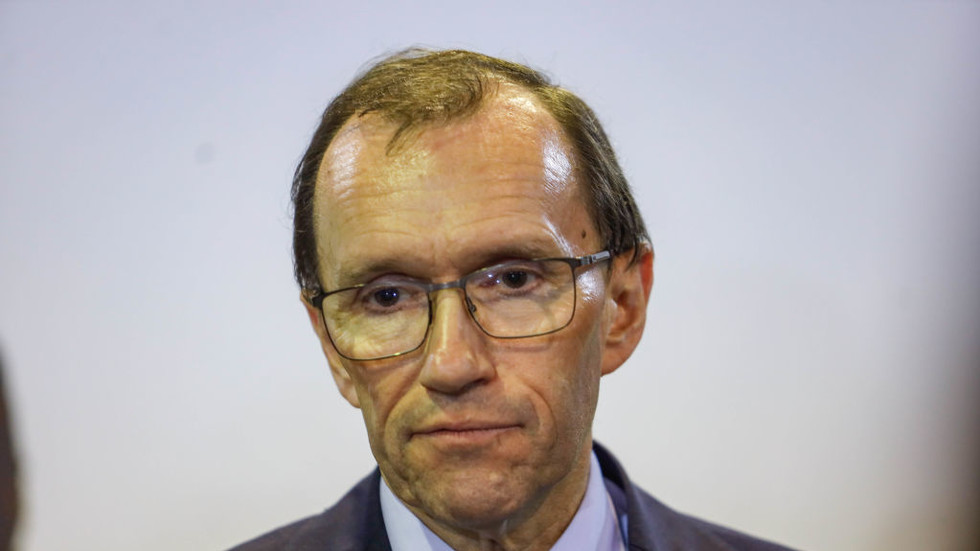The German Bundestag will hold of confidence in Chancellor Olaf Scholz's government later on Monday. Euronews has summarised what exactly it is and what happens afterwards.
The German Bundestag is holding a vote of confidence for Chancellor Olaf Scholz today.
After the collapse of the German "traffic light coalition" and Scholz governing with a minority coalition consisting of the SPD and Green parties, the Chancellor had promised to call a vote of confidence.
Scholz formally submitted the motion to Bundestag President Bärbel Bas last Wednesday.
What is the vote of confidence?
The vote of confidence is a political means by which the Federal Chancellor can check whether or not the Bundestag trusts him and his policies.
It was introduced into German law after the Second World War to ensure that the Federal Chancellor could not dissolve the Bundestag on his own. So far, the vote of confidence has been called five times in the history of the Federal Republic of Germany.
The last time was almost 20 years ago by former SPD Chancellor Gerhard Schröder.
The vote of confidence is regulated by Article 68 of the German constitution. It also states that the motion of confidence must be received at least 48 hours before the vote. Scholz met the deadline with his motion last Wednesday.
On Monday, Scholz will justify his motion in a short speech to the Bundestag. The motion will be decided by means of a roll-call vote.
It is generally expected that Scholz will lose the vote of confidence - in other words, that the majority in the Bundestag will no longer have confidence in him and his government.
His SPD party currently holds 207 seats in the Bundestag. The remaining coalition party, the Greens, has 117 seats.
In total, the MPs of the two parties would therefore not reach the majority of 367. Additionally, some Green MPs have already announced that they will abstain.
What happens after the vote of confidence?
If Scholz loses the vote of confidence as expected, he will then propose to Federal President Frank-Walter Steinmeier that the Bundestag be dissolved.
Steinmeier can decide whether or not to dissolve the Bundestag. Steinmeier already indicated in a speech in November that he would do so if Scholz loses.
According to media reports, it is not yet clear when Steinmeier will make his decision. However, he must dissolve the Bundestag within 21 days following a request for dissolution.
New elections must then be held within 60 days, as stipulated in Article 39 of the German constitution.
The date for the new elections has already been set for 23 February 2025. In order to meet this deadline, the German media expects Steinmeier to dissolve the Bundestag after the Christmas holidays on 27 December.
With the prospect of new elections, the election campaign will really get going. The parties' draft election programmes are already available, and the SPD, FDP and CDU/CSU intend to adopt and publish their programmes on Tuesday.
In the current polls, the CDU/CSU is far ahead of Olaf Scholz's SPD.
According to politics professor Dr Hajo Funke, the FDP is the biggest loser of the vote of confidence: "The SPD and the Greens seem to be benefiting from the end of the coalition and SPD leader Olaf Scholz feels liberated by the dissolution of the coalition."
Regarding the election campaign, Funke says: "The three core issues - economic crisis management, social justice and war/peace - will dominate the election campaign."
Just a few hours after Donald Trump was elected US President for the second time, the German government collapsed.
Scholz sacked Finance Minister Christian Lindner. The subsequent press conference was, surprisingly for the population, characterised by emotions. Since then, Chancellor Scholz has governed with a minority government consisting of his SPD and the Greens.

 3 months ago
30
3 months ago
30






 We deliver critical software at unparalleled value and speed to help your business thrive
We deliver critical software at unparalleled value and speed to help your business thrive






 English (US) ·
English (US) ·